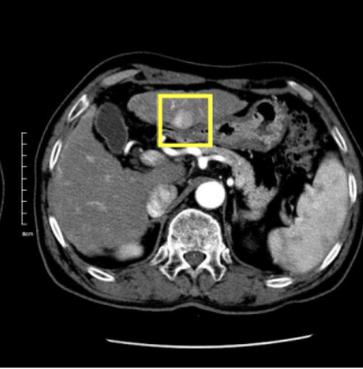Conditional Training with Bounding Map for Universal Lesion Detection
Universal Lesion Detection (ULD) in computed tomography plays an essential role in computer-aided diagnosis. Promising ULD results have been reported by coarse-to-fine two-stage detection approaches, but such two-stage ULD methods still suffer from issues like imbalance of positive v.s. negative anchors during object proposal and insufficient supervision problem during localization regression and classification of the region of interest (RoI) proposals. While leveraging pseudo segmentation masks such as bounding map (BM) can reduce the above issues to some degree, it is still an open problem to effectively handle the diverse lesion shapes and sizes in ULD. In this paper, we propose a BM-based conditional training for two-stage ULD, which can (i) reduce positive vs. negative anchor imbalance via BM-based conditioning (BMC) mechanism for anchor sampling instead of traditional IoU-based rule; and (ii) adaptively compute size-adaptive BM (ABM) from lesion bounding box, which is used for improving lesion localization accuracy via ABMsupervised segmentation. Experiments with four state-of-the-art methods show that the proposed approach can bring an almost free detection accuracy improvement without requiring expensive lesion mask annotations.
PDF AbstractDatasets
| Task | Dataset | Model | Metric Name | Metric Value | Global Rank | Benchmark |
|---|---|---|---|---|---|---|
| Medical Object Detection | DeepLesion | AlignShift | Sensitivity | 86.83 | # 3 |




 DeepLesion
DeepLesion
